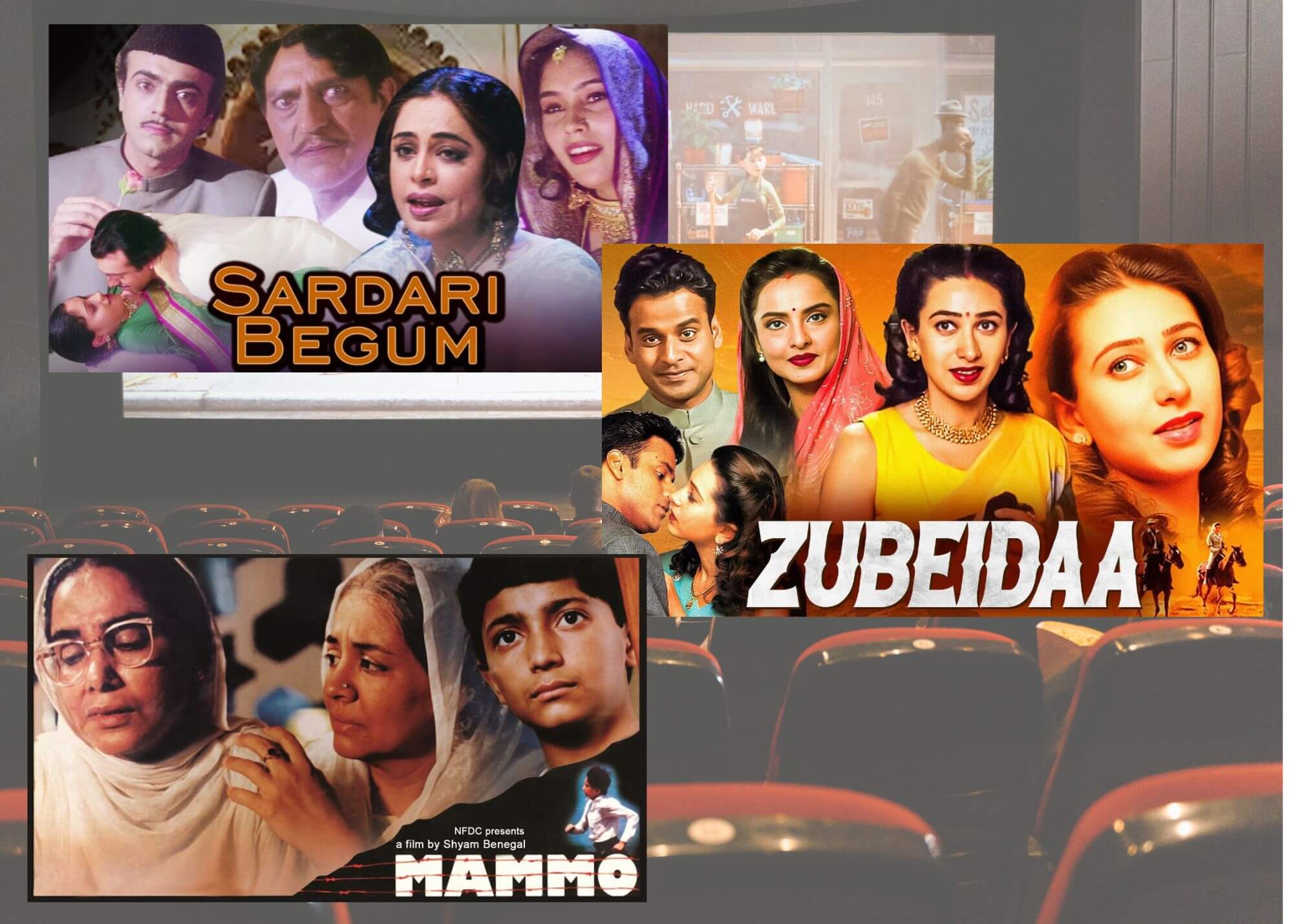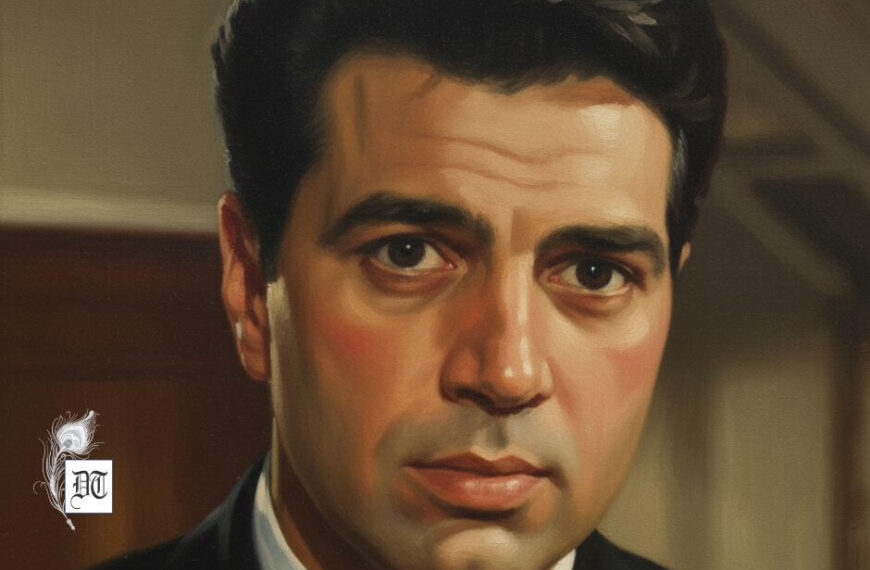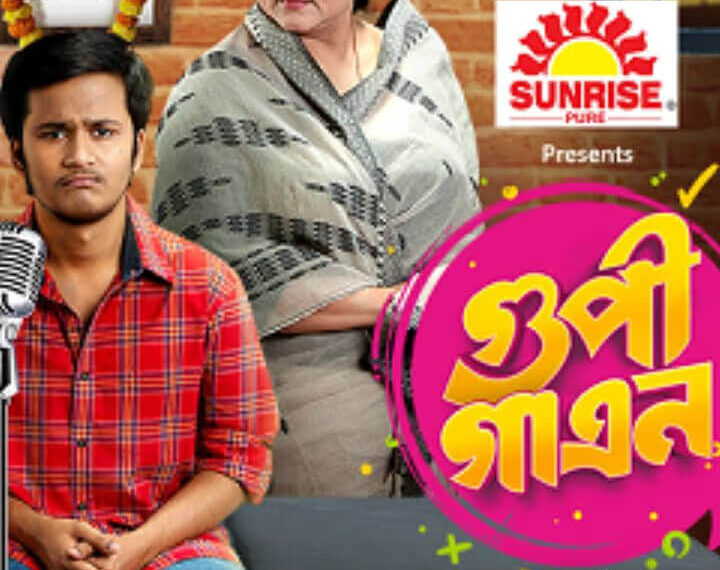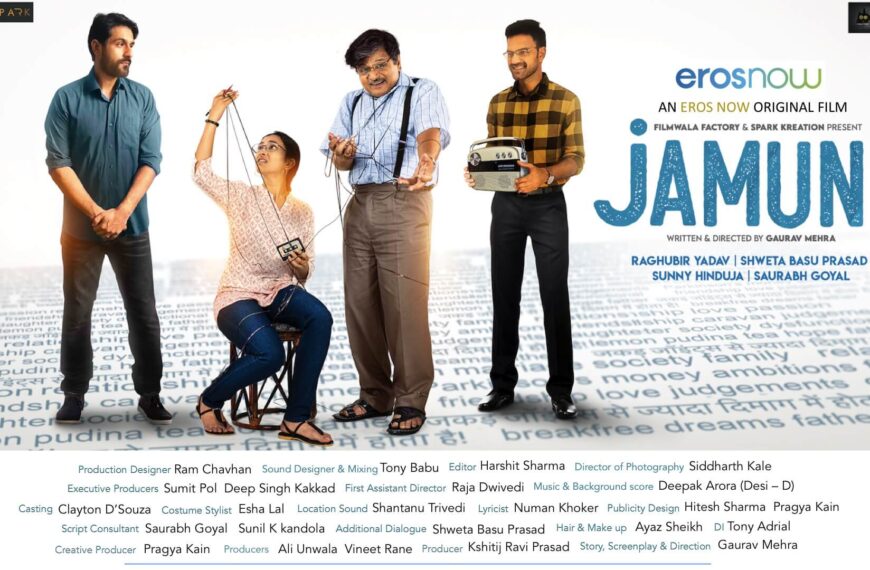Shyam Benegal’s feminist trilogy, Sardari Begum, Mammo, and Zubeidaa, showcases resilient women challenging societal norms and patriarchal constraints, a tribute by Ruchira exclusively for Different Truths.

In the last week of the year just gone by, the eminent film director Shyam Bengal who strode the Bollywood tinsel world like a Colossus, took his last bow. During his long illustrious career, Benegal made films on divergent subjects and all walks of life: from the glitzy to the ordinary to the dark and sinister, he handled them all with elan and finesse. However, a nondescript movie buff like me would always like to remember him as a feminist per excellence. In this context, I would like to focus on three of his outstanding feministic films. Benegal labeled them as a trilogy though they are not even remotely connected.
To begin with, we have Sardari Begum (played by Kiron Kher), a determined, headstrong woman with an intense passion for music. A woman of many contrasts, she constantly rebels against men’s patriarchal attitudes and lives on her terms. One fateful night, she defies her stern domineering father and flees her home in Agra. Her mentor, Ittan Bai, refuses to give her shelter. Sardari then approaches a music connoisseur Hemraj (Amrish Puri), a lascivious Zamindar and womaniser, his marriage notwithstanding. Hemraj maintains his ties and patronage (against all odds), and eventually, Sardari gives birth to his child, Sakina.
Meanwhile, several other men – all connected to the music circle-walk in and out of her private life, whether in matrimony or out of it. A few exploit her talent for their benefit; her career has many crests and troughs. But she refuses to buckle under pressure.
A Strained Relationship
Sardari Begum has a strained relationship with her now grown-up daughter Sakina whom she wants to push into her trade; but Sakina rebels against her mother, whom she brands as cruel and selfish. Towards the end of the narrative, Sardari is grievously injured by stone pelting during a riot. As she lies dying, the mother-daughter reconciles; Sakina takes up her mother’s legacy.
Mammo alias Mehmooda Begum (Farida Jalal) is a bubbly vivacious woman. Genial and kind-hearted, she is garrulous to the extreme. There is never a dull moment when she happens to be around. She is the perpetual do-gooder, who impulsively helps people in distress. Caustic remarks or criticism slips off her mind just as water drops roll off a duck’s back. However, on one occasion, when seriously offended she leaves home to take refuge in a mosque, from where her sister Fayyuzi (Surekha Sikri) and her grandson take her back home. Although born in Panipat during the British Raj, Mammo migrates to Pakistan. After marriage, unable to conceive, she is frowned upon for barrenness. Following her spouse’s demise, she is ostracised by his kin.
Having nowhere else to go, she comes to live in Bombay – with her widowed sister Fayyuzi and her orphaned grandson Riyaz (Rajit Kapoor) – on a temporary visa. Every month, she walks to the nearest police station and bribes the inspector-in-charge to get a permanent visa albeit through underhand means. When a new official takes over, he scrutinises her papers, declares her an illegal immigrant, arrests her, and subsequently puts her on board the Frontier Mail, which would take her back to Pakistan. Riyaz and Fayyuzi leave no stone unturned to trace and bring her back. But alas!
Twenty years later, we find a youthful Riyaz has written a book about his ‘great aunt’ hoping that someday, they will be reunited. Presto! She appears on their doorstep.
An Aspiring Actress
The third on the list is the volatile life of an aspiring actress named Zubeidaa (Karishma Kapoor) based on a true story. All her hopes dreams and aspirations are brutally crushed underfoot by insensitive men in her life. Her father vehemently opposes her acting ambitions and forces her to marry Mehmood, a son of one of his friends. Together they have an offspring, Riyaz. As ill luck would have it the marriage ends in a divorce when the two fathers turn acrimonious towards each other. Leaving her infant son with her mother and in a bid to pick up the threads of life again Zubeidaa moves on… Soon she falls in love with Vijayendra Singh, a scion of Jodhpur’s royal family. Singh is married and a father of two.
Nevertheless, the duo marries and Zubeidaa steps into the Royal household. Her life turns stormy and replete with intrigue, stringent rules and regulations. As if this was not enough, she has to constantly struggle to stave off the sexual advances of her lecherous brother-in-law. But surprisingly she finds solace in and gains the confidence of her souten/co-wife Mandira (played by Rekha). However, she is pained to discover how the husband leans more on Mandira rather than on her even though she loves him deeply as befits a wife. On one occasion, when the prince-turned-politician plans to fly to the National capital to attend an event she decides to accompany him. Tragically the plane crashes and the couple are united in death.
The silver lining in this grim poignant tale is when a grown-up Riyaz embarks on a mission to discover the Truth about his late mother and bring the facts to light. Ultimately, he manages to do so, thereby vindicating his dead mother who had remained elusive during her lifetime.
In conclusion, despite hailing from different social strata and backgrounds, the three individuals are united by a common thread: they all exhibited courage and confidence in rebelling against a ruthless society and ultimately emerged victorious.
Picture design by Anumita Roy







 By
By

 By
By